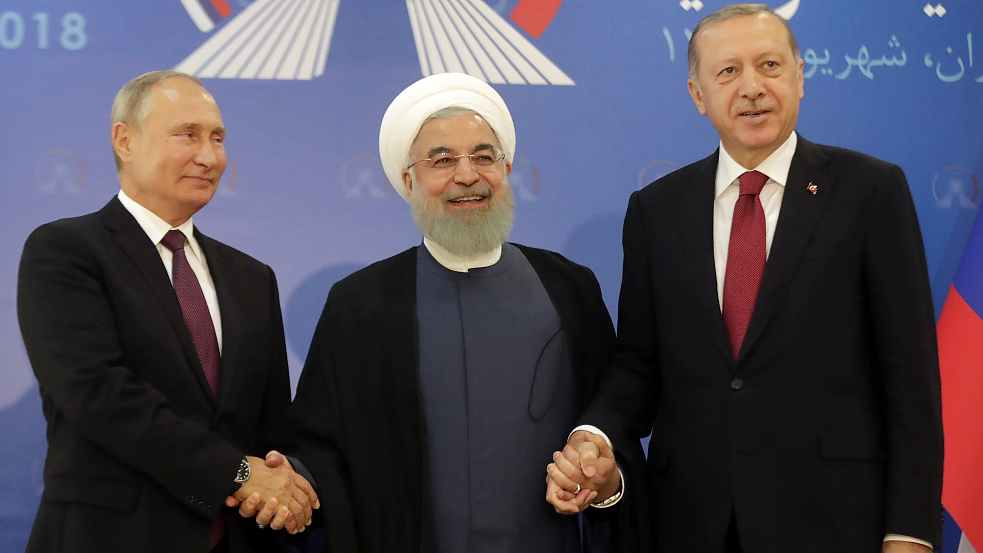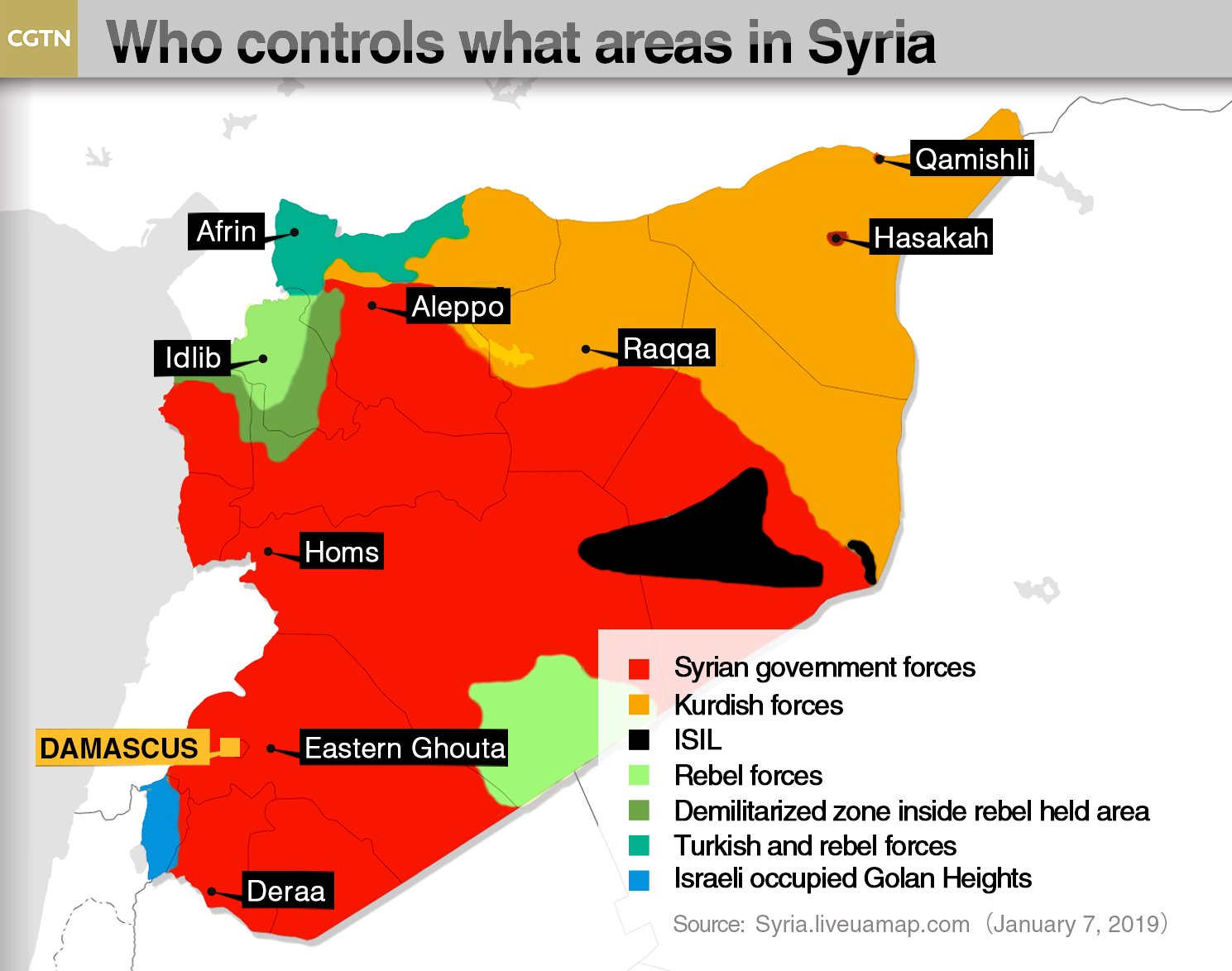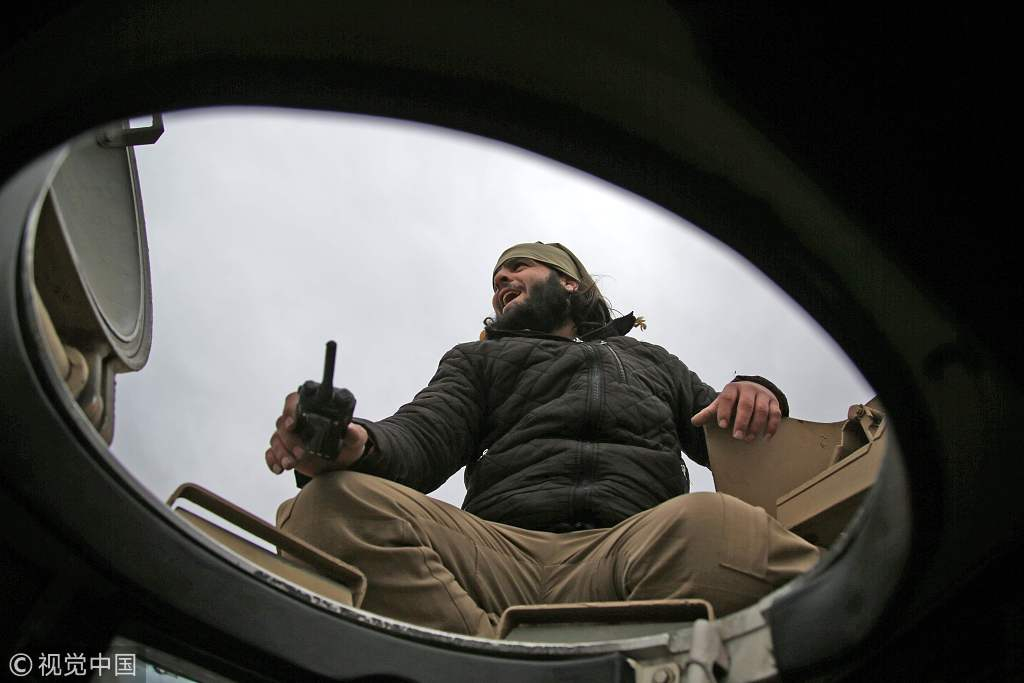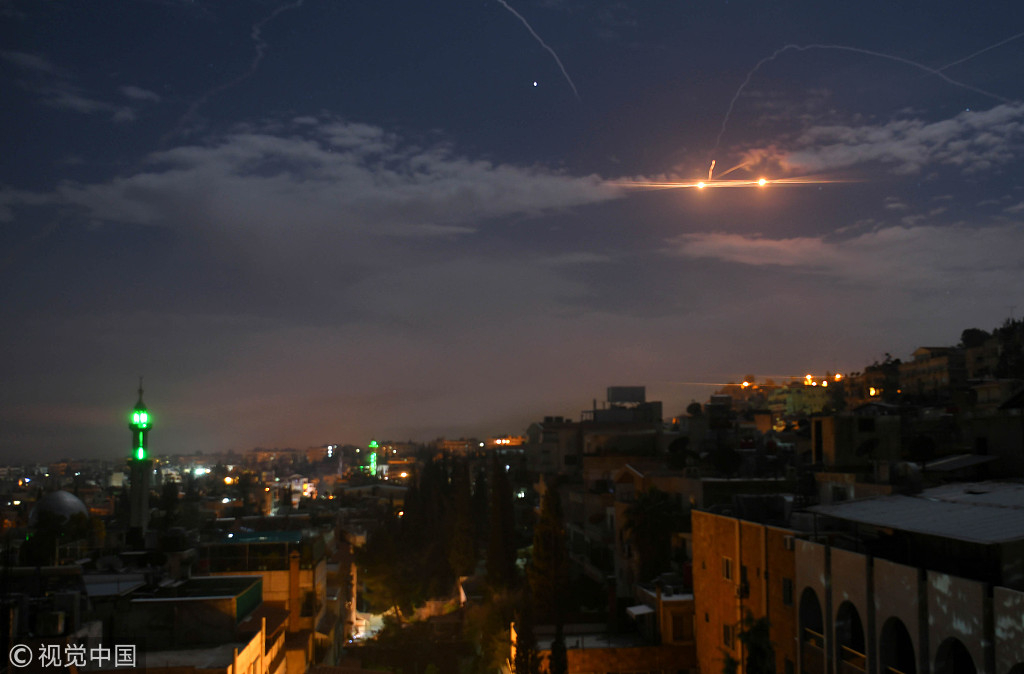
Middle East
22:40, 22-Jan-2019
Parties vie for vacuum in Syria after U.S. withdrawal
Updated
17:52, 23-Jan-2019
By Duan Fengyuan

Turkish President Recep Tayyip Erdogan will meet Russian President Vladimir Putin in Moscow Wednesday to discuss bilateral relations, post-Syria conditions, and a possible Russia-Turkey-Iran trilateral summit.
Obliviously things have changed a lot after U.S. President Donald Trump's abrupt order to withdraw troops from Syria, and it is time for the three countries to talk again after their previous three-way summit on Syria in Iran last September.
Actions of parties going on in Syria
The three key players have done a lot to build a sense of existence respectively in Syria during the passing month, which may gradually influence the trend of Syria's future.

Russia
President Putin praised Trump's decision as a "correct one" at his annual year-end news conference, soon after the withdrawal announcement.
Then senior Russia and Turkey officials hurried to meet and quickly reached an "understanding" on cooperation in northern Syria in Moscow on December 29.
The pullout also sparked concerns in Israel, which constantly carried out airstrikes in Syria against its enemies. On January 4, Putin and Israel's Prime Minister Benjamin Netanyahu firstly held talks since the withdrawal announcement, agreeing on continued coordination aimed at preventing Iran from entrenching itself militarily in Syria.

A Turkish-backed Syrian fighter sits atop an armored vehicle as he participates in a training maneuver, near the town of Tal Hajar in Syria's Aleppo province, a few kilometers from areas controlled by a Kurdish-led coalition, January 16, 2019. /VCG Photo
A Turkish-backed Syrian fighter sits atop an armored vehicle as he participates in a training maneuver, near the town of Tal Hajar in Syria's Aleppo province, a few kilometers from areas controlled by a Kurdish-led coalition, January 16, 2019. /VCG Photo
At the same time, the actual action is also taking place. The military police of the Russian Armed Forces began patrolling around Manbij, an area once held by the Kurds.
Russian military police spokesperson Yusup Mamatov announced that the task is to ensure security in the area of responsibility, to control the position and movement of armed formations.
Turkey
A proposed safe zone to protect Kurds from Turkey's threatened attacks is one of the latest developments in Syria. Last month, Turkey said it would launch a cross-border operation to eliminate the U.S.-backed Kurdish militia.
Washington has proposed to set up a 32-km safe zone in northeastern Syria, a move welcomed by Ankara with a precondition that the zone will be set up and controlled by Turkey, while Russia claimed that it should be under control of the Syrian government.
The United States and Turkey sparred over the fate of U.S.-allied People's Protection Units (YPG), in Syria. Turkey views it as a terrorist group and an extension of the outlawed Kurdistan Workers Party (PKK) that has for decades waged a separatist insurgency in Turkey.
A delegation from the Turkish Foreign Ministry headed by Deputy Foreign Minister Sedat Onal will further discuss this security zone issue with US colleagues in Washington on February 5.
Iran
Iran's situation in Syria is not optimistic.

A picture taken on January 21, 2019, shows Syrian air defense batteries responding to what the Syrian state media said were Israeli missiles targeting Damascus. /VCG Photo
A picture taken on January 21, 2019, shows Syrian air defense batteries responding to what the Syrian state media said were Israeli missiles targeting Damascus. /VCG Photo
Israel, regarding Iran as its biggest threat, has repeatedly attacked Iranian targets in Syria and those of allied militia.
"We are acting against Iran and the Syrian forces that abet the Iranian aggression," Netanyahu said in a public speech Monday. "Whoever threatens to destroy us will bear the full responsibility."
Iran will keep its military advisers and hardware in Syria despite Israel's threats, the chief commander of the Iranian Islamic Revolution Guards Corps (IRGC) said earlier before this attack.
The threat of confrontation between arch-enemies Israel and Iran has long simmered in Syria, where the Iranian military built a presence early in the nearly eight-year civil war to help President Bashar al-Assad's government.
(Cover: Russia's President Vladimir Putin (L), Iran's President Hassan Rouhani, and Turkey's President Recep Tayyip Erdogan (R) pose ahead of the third trilateral meeting aimed at facilitating the peace process in Syria and held at an international congress center in Tehran, September 7, 2018. /VCG Photo)
(With inputs from agencies)

SITEMAP
Copyright © 2018 CGTN. Beijing ICP prepared NO.16065310-3
Copyright © 2018 CGTN. Beijing ICP prepared NO.16065310-3